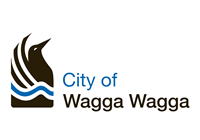Wagga Wagga City
Aboriginal and Torres Strait Islander profile - Qualifications
14.6% of the Aboriginal and Torres Strait Islander people in Wagga Wagga City have a tertiary qualification.
Highest qualification achieved shows the level of qualification, school or non-school, which is the highest that a person has achieved. This topic is useful for looking at the education and work prospects of the First Nations community, how many have completed schooling, and how many have gone on to University or TAFE qualifications.
This is an important indicator of the socio-economic status of the First Nations community in the area, and should be viewed in conjunction with the more detailed Highest Level of Schooling and Education Institute Attending variables, as well as Employment Status.
Derived from the Census questions:
'What is the level of the highest qualification the person has completed?' and 'What is the highest year of primary or secondary school the person has completed?'
Persons aged 15 years and over
| Highest qualification achieved | ||||||||
|---|---|---|---|---|---|---|---|---|
| Aboriginal and Torres Strait Islander peoples - Wagga Wagga City | 2021 | 2011 | Change | |||||
| Qualification level | Number | % | New South Wales - First Nations % | Number | % | New South Wales - First Nations % | 2011 to 2021 | |
| Bachelor or Higher degree | 216 | 7.5 | 6.8 | 67 | 4.0 | 4.1 | +149 | 5001 |
| Advanced diploma or diploma | 203 | 7.1 | 6.5 | 68 | 4.1 | 3.9 | +135 | 5002 |
| Certificate III & IV Level | 580 | 20.1 | 21.5 | 277 | 16.7 | 14.3 | +303 | 5003 |
| Certificate I & II Level | 8 | 0.3 | 38.2 | 3 | 0.2 | 37.8 | +5 | 5004 |
| Year 10 and above | 1,139 | 39.6 | 0.3 | 649 | 39.1 | 0.5 | +490 | 5005 |
| Year 9 and below | 471 | 16.4 | 15.8 | 373 | 22.5 | 22.4 | +98 | 5006 |
| No educational attainment | 14 | 0.5 | 0.5 | 13 | 0.8 | 0.7 | +1 | 5007 |
| Not stated | 248 | 8.6 | 10.4 | 209 | 12.6 | 16.4 | +39 | 5008 |
| Total people age 15+ | 2,879 | 100.0 | 100.0 | 1,659 | 100.0 | 100.0 | +1,220 | 9999 |
Source: Australian Bureau of Statistics, Census of Population and Housing (opens a new window) 2011 and 2021. Compiled and presented by .id (opens a new window)(informed decisions).
(Usual residence data)

Compiled and presented in profile.id by .id (informed decisions).

Compiled and presented in profile.id by .id (informed decisions).
Dominant groups
Analysis of the qualifications of the Aboriginal and Torres Strait Islander people in Wagga Wagga City in 2021 compared to the Aboriginal and Torres Strait Islander population in New South Wales shows that there was a similar proportion of people holding formal qualifications (Bachelor or higher degree; Advanced Diploma or Diploma; or Vocational qualifications), as well as a similar proportion of people with no formal qualifications.
Overall, 34.7% of the Aboriginal and Torres Strait Islander people aged 15 and over held educational qualifications, and 0.5% had no qualifications, compared with 34.8% and 0.5% respectively for the Aboriginal and Torres Strait Islander population in New South Wales.
The major differences between highest educational attainment held by the Aboriginal and Torres Strait Islander population of Wagga Wagga City and the Aboriginal and Torres Strait Islander population in New South Wales were:
- A larger percentage of people who completed year 11 or 12 (39.6% compared to 0.3%)
- A smaller percentage of people Certificate I & II Level (0.3% compared to 38.2%)
- A smaller percentage of people Not stated (8.6% compared to 10.4%)
- A smaller percentage of people who completed vocational qualification (20.1% compared to 21.5%)
Emerging groups
The largest changes in highest educational attainment of the Aboriginal and Torres Strait Islander population in Wagga Wagga City between 2011 and 2021 were in those with:
- who completed year 11 or 12 (+490 people)
- who completed vocational qualification (+303 people)
- who completed a bachelor degree level or higher (+149 people)
- who completed an advanced diploma or diploma (+135 people)
